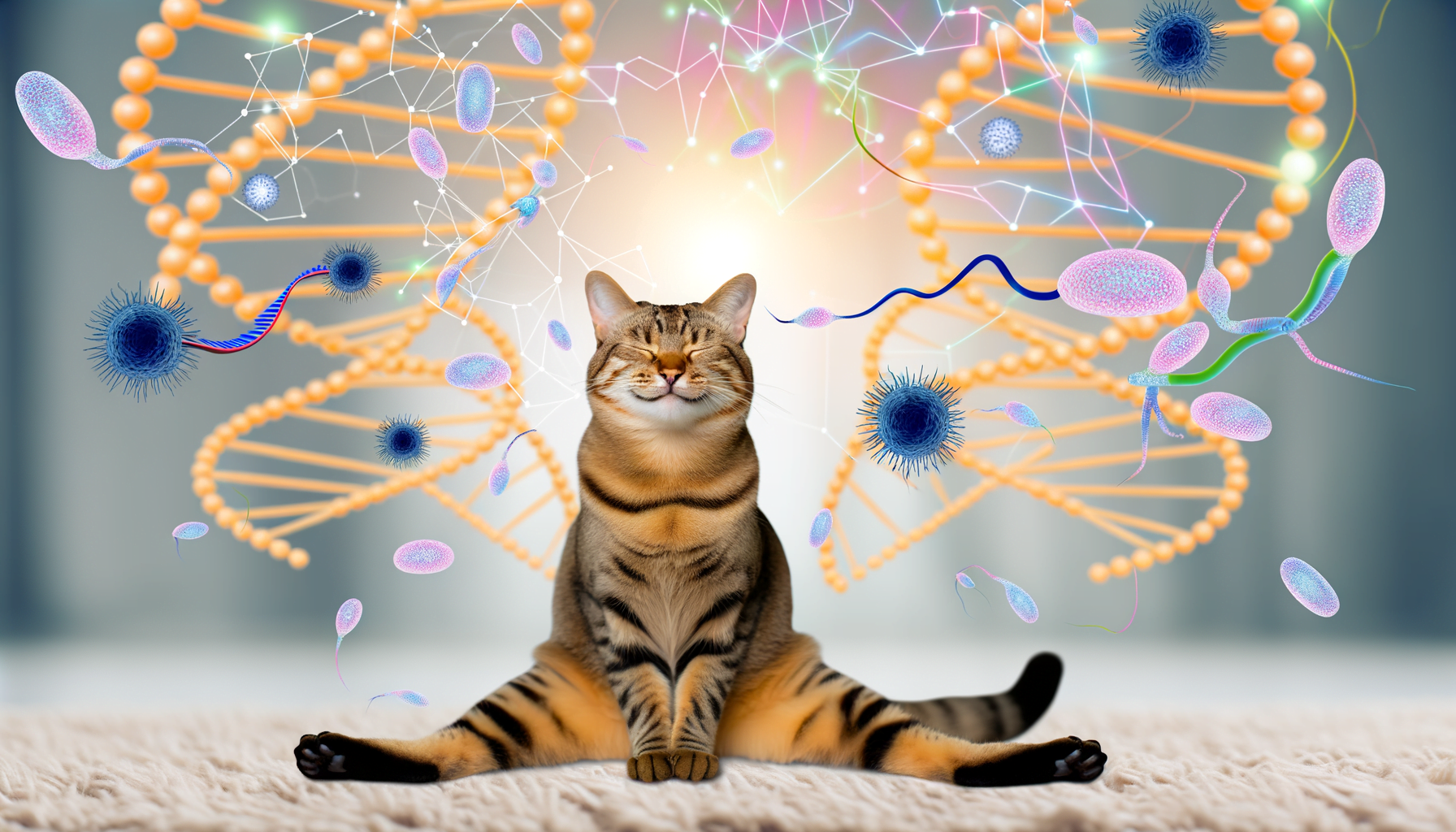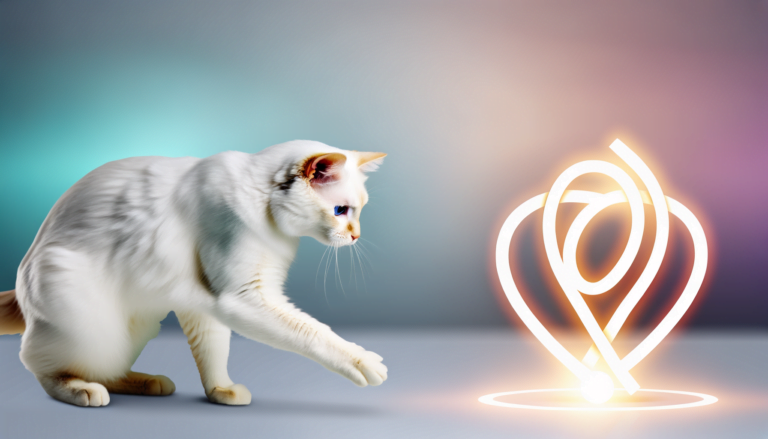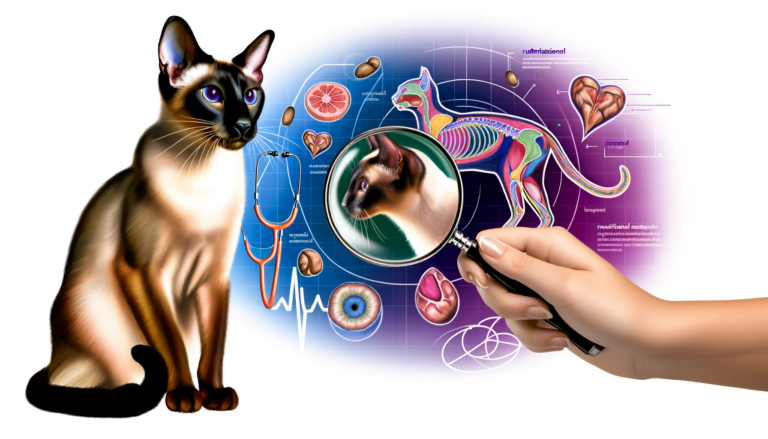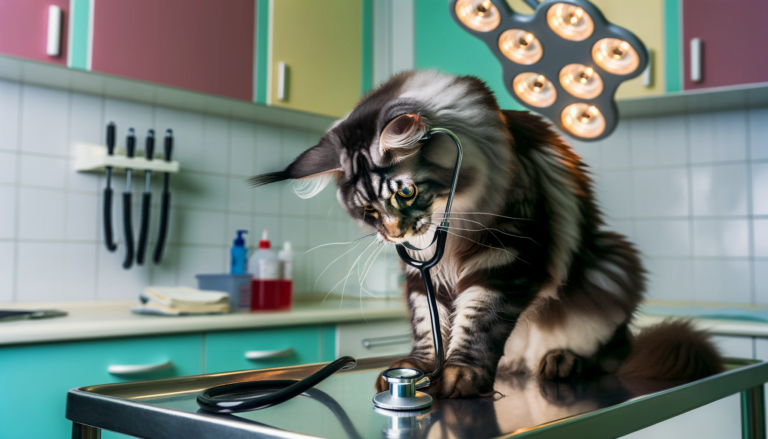Boosting Health with Feline Companions: The Science Behind Cats
Indeed, cats can significantly contribute to human health in various ways. Their comforting presence is known to reduce stress along with potential related complications like heart diseases. The routine involved with cat care, such as feeding and grooming, can bring structure to one’s life, aiding mental health. Furthermore, their playful nature can encourage physical activity and serve as a joyous distraction. However, people with certain allergies need to consider these factors. A cat’s benefit to human health often outweighs these concerns for most individuals.
How Cats Positively Impact Mental Health

Living within the quiet, ever-watching presence of a domestic cat can indeed be a boon to mental health. Purring companionship brings a perplexity of peace, drawing our erratic minds to a point of calm, centered focus. This is more than an anecdotal claim as research over the years substantiated this feline benefit.
The rhythm of a cat’s purr, for instance, has a demonstrable soothing effect, helping to decrease feelings of anxiety and stress. Conversely, the sharp meow might bring about a joyful burstiness that serves as a necessary respite from the intensity of an otherwise monotonous day. Interestingly, these sound effects can prompt our bodies to release dopamine, a neurotransmitter associated with feelings of pleasure and satisfaction.
Moreover, facilitating care for another living creature encourages a mentality of responsibility and empathy, significantly benefiting our overall psychological well-being. The interactions with cats, their unpredictable playfulness combined with moments of feline affection, improve our mood and stave off the shadows of loneliness or depression. Hence, cats truly manifest as gentle mental health allies, busily weaving their mystical charm into our everyday lives.
Understanding the Health Benefits of Owning a Cat

Cat ownership presents a plethora of health benefits. Notably, they can boost cardiovascular health. A Minnesota study observed a remarkable reduction in heart attack risk for cat owners. To put it in figures, cat owners exhibited a 30% lower risk of succumbing to heart attack.
Adding to cardiovascular benefits, allergy resistance is another intriguing perk. Infants living with cats are prone to develop a stronger immune response. These tiny subjects were found to be less susceptible to allergies and asthma, a fact attributed to exposure to pet dander.
Lastly, the power of a cat’s purr is not to be dismissed. A cat’s purr lies within the 20-140 Hz range, which is medically therapeutic. These frequencies are beneficial for a variety of ailments – from wound healing acceleration to pain relief, reducing swelling, along with increasing the production of growth factors.
Examining Studies on Cats and Human Health Impact

Consistent examination of various studies has revealed the correlation between cat ownership and the enhancement of human health. Extensive scientific research has gone into understanding the impact of felines on the health of their human counterparts.
An epidemiological study published in the journal Scientific Reports found a reduction in cardiovascular diseases among people who owned cats. This aligns with other studies that suggest cat owners have lower blood pressure and decreased stroke risk. These striking connections highlight the potential cardio-protective effect cats may offer.
On the mental health front, research from Mental Health Foundation suggests that interacting with cats can alleviate stress and anxiety, contributing to an overall improvement in mental wellbeing. As we interpret these findings, the role of our feline companions in boosting both our mental and physical health becomes more apparent.
Physical Health Advantages Associated with Cat Ownership

Diving into the physical health advantages linked to cat ownership, it’s interesting to note that cats, unlike many other pets, require relatively low maintenance. This characteristic renders them ideal companions for people leading physically active lifestyles yet desiring companionship.
One of the outstanding benefits that cats confer on their owners includes decreased blood pressure. Interacting with our feline buddies facilitates the release of calming chemicals in our system, effectively reducing stress and, by extension, blood pressure. Cats also provide an unexpected form of workout. Small activities, like playtime with your furry friend, incorporate physical activity into your schedule, helping maintain a good health profile.
Moreover, cats can boost our immunity. Owning a cat exposes one to allergens at a moderate level allowing gradual immunity buildup. This exposure is particularly beneficial for children, as it may potentially reduce the risk of developing allergies and asthma. Hence, these silent advantages attributed to owning a cat significantly contribute to one’s overall health.
Conclusion
With the science behind cats continuing to reveal the myriad health benefits of feline companionship, it’s clear that these beloved pets offer more than just cuddles and purrs. From stress reduction to improved cardiovascular health, the bond between humans and cats is a powerful one that can positively impact overall well-being.
As we delve deeper into the ways in which cats contribute to our health, it becomes evident that their presence goes far beyond simple companionship. With their calming purrs and playful antics, cats have the potential to boost both our physical and mental health in ways that are truly remarkable. So next time you snuggle up with your furry friend, remember that you’re not just enjoying their company – you’re also investing in your own health and happiness.






